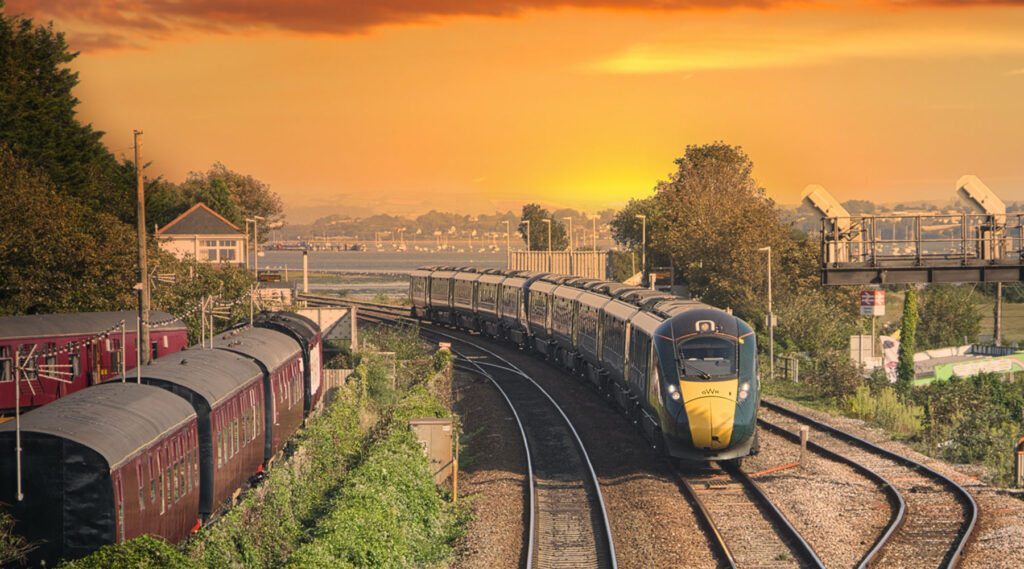Almost a third of journeys often flown within Great Britain could be quicker if people travelled by train instead, according to a recent report from the Intergenerational Foundation think tank. The bulk of the rest would be around 30 minutes slower by train than by plane.
The findings come from a report that suggests a ban on domestic passenger flights for journeys with viable railway journeys of under four-and-a-half hours could cut Great Britain’s CO2 emissions from domestic aviation in half.
Domestic aviation was responsible for emitting 2.7 megatonnes of CO2 and CO2 equivalents in 2019. However, almost two-thirds (62%) of CO2 emissions from UK domestic flights in 2019 were between cities linked by the rail network, and are potentially replaceable by rail travel.
The report (pdf) found that the Newcastle-London and Manchester-London routes have faster city-centre to city-centre travel by train than by plane. The report calls for the government to ban domestic flights on routes that could be travelled by rail in 4.5 hours or less.
An alternative to an outright ban could however be to apply comparable taxes on aviation fuel that apply to road fuels. At the moment, although the government taxes fuel used by road and rail, it doesn’t tax aviation fuel. An international agreement (pdf) prevents taxes on aviation fuel for international travel, but would not forbid that for domestic airlines.
At the moment, domestic flights are usually cheaper than rail fares, unless booked in advance, but that difference shrinks considerably, and may even reverse if domestic aviation fuel were to be taxed.
This brings the aviation industry in line with the principle of polluter pays in taxation.
There does however have to be an investment in rail as well.
High Speed 2 (HS2), when it opens will substantially increase capacity on the railways to cope with increasing numbers of passengers, but there also needs to be shorter term regional upgrades.
There is evidence that when rail travel is reliable, then people will switch to using it, and that requires investment in reliability.
A large part of the reason for the above mentioned Manchester-London rail route being faster than by plane is because of the substantial investment in both tracks and trains that not only increased the speed of the trains, but also reduce the delays caused by problems.
It famously took time to sort out the upgrade, but with journeys between the two cities now a shade under 2 hours — and that was from city centre to city centre, air travel between the cities has collapsed.
Just randomly checking on a flights website, I could find just one flight from London to Manchester arriving before 9am on a Friday, but a similar trip by train would offer me three trips arriving between 8am and 9am. And the prices were comparable.
A ban on domestic flights as proposed by the think tank is possible, but rather than using the stick to drive people onto trains, why not make the trains so desirable that people wouldn’t even think of flying?
This article was published on ianVisits
SUPPORT THIS WEBSITE
This website has been running now for just over a decade, and while advertising revenue contributes to funding the website, but doesn’t cover the costs. That is why I have set up a facility with DonorBox where you can contribute to the costs of the website and time invested in writing and research for the news articles.
It’s very similar to the way The Guardian and many smaller websites are now seeking to generate an income in the face of rising costs and declining advertising.
Whether its a one-off donation or a regular giver, every additional support goes a long way to covering the running costs of this website, and keeping you regularly topped up doses of Londony news and facts.
If you like what your read on here, then please support the website here.
Thank you
The post Calls for a ban on domestic flights to boost rail travel appeared first on ianVisits.

